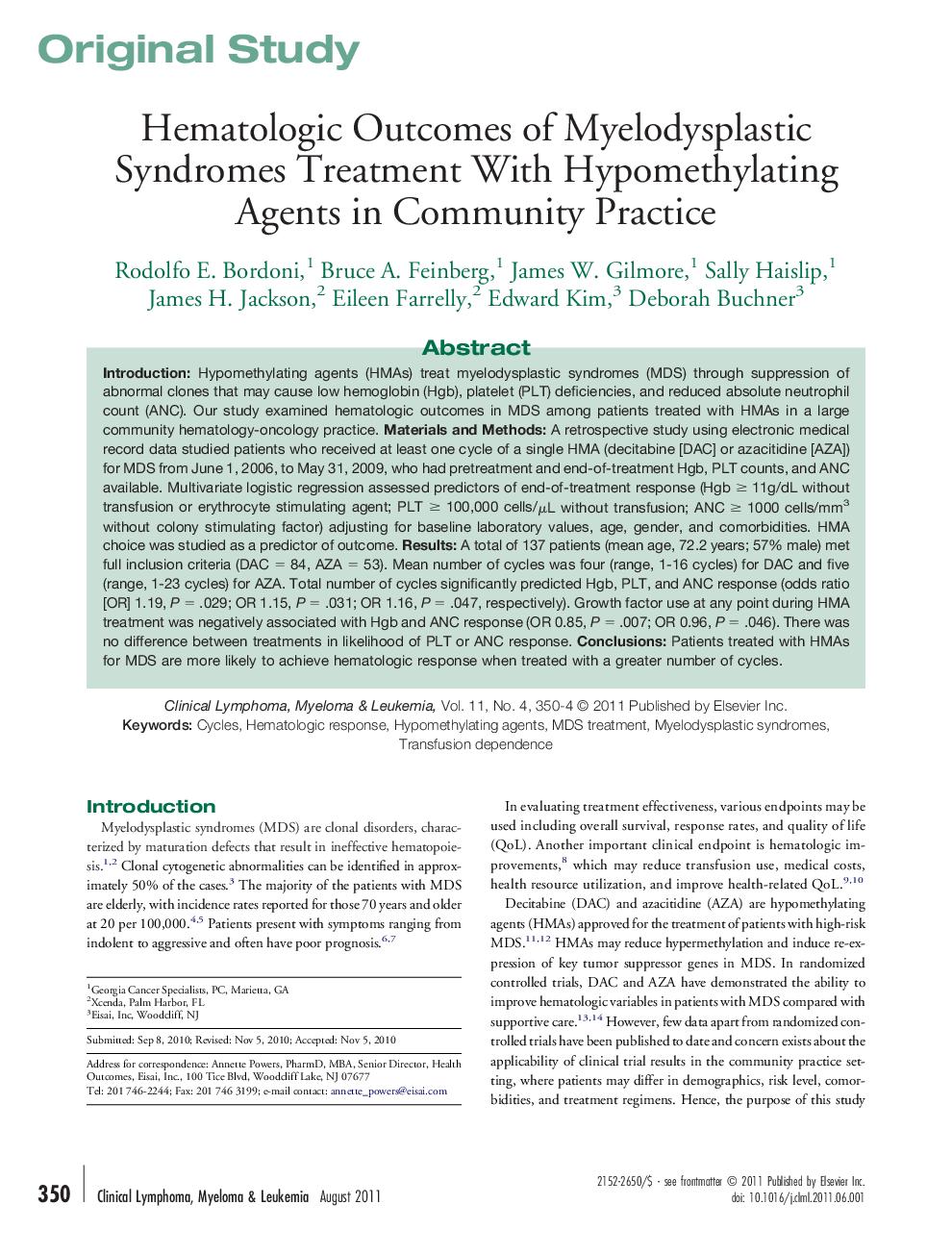| Article ID | Journal | Published Year | Pages | File Type |
|---|---|---|---|---|
| 2754564 | Clinical Lymphoma Myeloma and Leukemia | 2011 | 5 Pages |
IntroductionHypomethylating agents (HMAs) treat myelodysplastic syndromes (MDS) through suppression of abnormal clones that may cause low hemoglobin (Hgb), platelet (PLT) deficiencies, and reduced absolute neutrophil count (ANC). Our study examined hematologic outcomes in MDS among patients treated with HMAs in a large community hematology-oncology practice.Materials and MethodsA retrospective study using electronic medical record data studied patients who received at least one cycle of a single HMA (decitabine [DAC] or azacitidine [AZA]) for MDS from June 1, 2006, to May 31, 2009, who had pretreatment and end-of-treatment Hgb, PLT counts, and ANC available. Multivariate logistic regression assessed predictors of end-of-treatment response (Hgb ≥ 11g/dL without transfusion or erythrocyte stimulating agent; PLT ≥ 100,000 cells/μL without transfusion; ANC ≥ 1000 cells/mm3 without colony stimulating factor) adjusting for baseline laboratory values, age, gender, and comorbidities. HMA choice was studied as a predictor of outcome.ResultsA total of 137 patients (mean age, 72.2 years; 57% male) met full inclusion criteria (DAC = 84, AZA = 53). Mean number of cycles was four (range, 1-16 cycles) for DAC and five (range, 1-23 cycles) for AZA. Total number of cycles significantly predicted Hgb, PLT, and ANC response (odds ratio [OR] 1.19, P = .029; OR 1.15, P = .031; OR 1.16, P = .047, respectively). Growth factor use at any point during HMA treatment was negatively associated with Hgb and ANC response (OR 0.85, P = .007; OR 0.96, P = .046). There was no difference between treatments in likelihood of PLT or ANC response.ConclusionsPatients treated with HMAs for MDS are more likely to achieve hematologic response when treated with a greater number of cycles.
